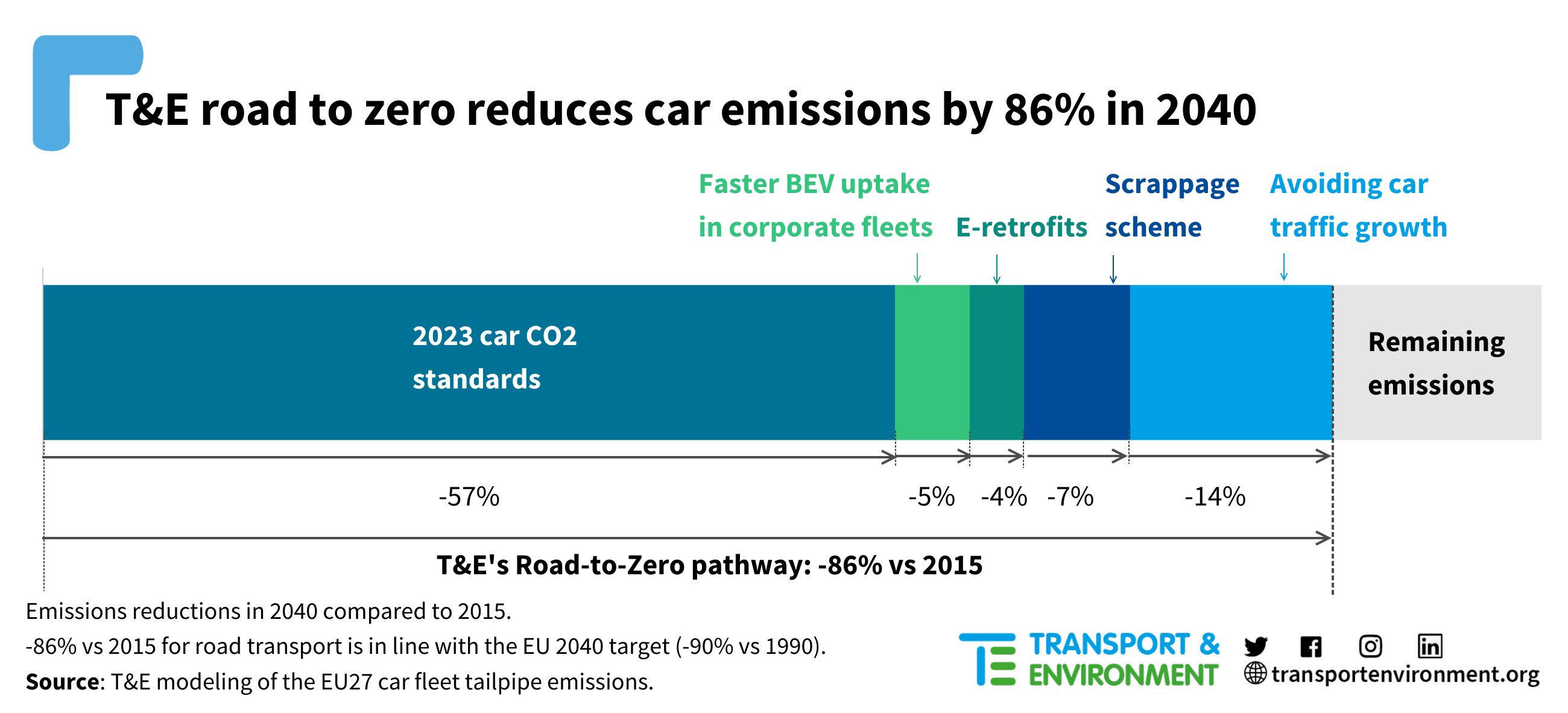The EU’s car CO2 standards, including the phase-out of combustion car sales in 2035, is the single most important emission reduction measure if the EU is to hit its proposed 2040 climate target, new analysis finds. But the bloc will also need to replace polluting cars and avoid growth in road traffic, according to Transport & Environment’s Car Decarbonisation Roadmap.

The EU Commission has proposed to reduce the bloc’s total emissions by 90% in 2040, compared to 1990. T&E’s roadmap analyses how to reduce emissions from the EU’s car fleet by 86% in 2040 compared to 2015:
- The car CO2 standards, agreed in 2023, will reduce car fleet emissions by 57% in 2040 compared to 2015;
- Avoiding growth in car activity – by stopping new road construction, shifting to public transport, and fuel pricing – will save 14%;
- Scrapping old combustion engines and replacing them with electric cars and public transport will save 7%;
- Faster electrification of company car fleets will save 5%;
- Retrofitting combustion engines to become battery electric cars will save 4%.
Lucien Mathieu, cars director at T&E, said: “Keeping the phase-out of combustion engines is the single most important cars policy to meet the EU 2040 climate goal. But no measure will be enough on its own. Avoiding additional road traffic, scrapping old petrol and diesel cars, and electrifying company cars are all needed to bring down emissions from the car fleet.”
Alternative fuels, like e-fuels, are not needed to reduce CO2 emissions from the existing fleet of cars, the report finds. Running cars on e-petrol is the most expensive option, according to the analysis. E-fuels also have the highest lifecycle emissions of the measures analysed, and they emit air pollution when burned. T&E said that instead of combustion car-based solutions that make mobility unaffordable, the focus should be on providing clean solutions for all including drivers who need a car.
Read T&E’s Car Decarbonisation Roadmap
ENDS


